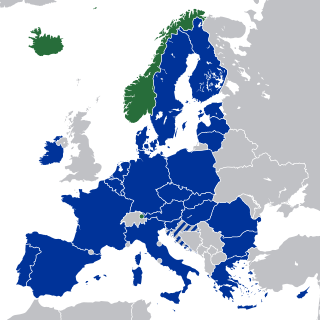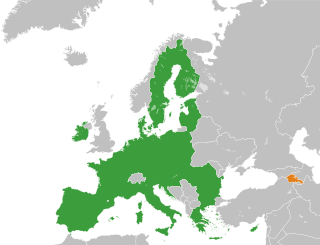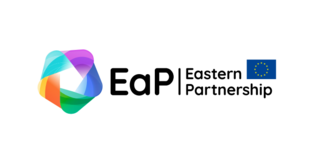 | |
| Author | Perry Anderson |
|---|---|
| Publisher | Verso Books |
Publication date | United Kingdom 2009 |
| Pages | 592pp. |
| ISBN | 1844678067 |
The New Old World is a 2009 book by Perry Anderson.
 | |
| Author | Perry Anderson |
|---|---|
| Publisher | Verso Books |
Publication date | United Kingdom 2009 |
| Pages | 592pp. |
| ISBN | 1844678067 |
The New Old World is a 2009 book by Perry Anderson.
The focus of the book is upon the history of the European Union from its inception to the present day, taking into account the question of ever larger European expansion and the possibility of the project extending into Asia. Anderson sees the European Union as "the last great world-historical achievement of the bourgeoisie". The work is founded upon essays years after they were originally written, and includes portraits of particular individuals who were central to the process of European integration such as Jean Monnet who is described as being "an international adventurer on a grand scale". [1]
It examines the core countries that lay at the heart of the European project in its early period and analyses the political and cultural developments of the primary countries that formed the Common Market, i.e. France, Italy and Germany.
It then discusses the question of the relationship between Cyprus and Turkey and how that has posed challenges to the success of European integration, including the wider vexed question of whether Europe and the EU should be contiguous.
Anderson excludes a discussion of his own country, the United Kingdom, arguing that its "history since the fall of Thatcher has been of little moment."
The book concludes with a section discussing the nascence and progression of the idea of European unification from the Enlightenment Period onwards and how those concepts affect the future trajectory of the EU. [2]
Anderson is critical of the way that the EU has developed, but in terms that vary radically from the oft-repeated grievances that it is over-centralised or overly bureaucratic, declaring instead that "Today's EU, with its pinched spending (just over 1% of GDP), minuscule bureaucracy (around 16,000 officials, excluding translators), absence of independent taxation, and lack of any means of administrative enforcement, could in many ways be regarded as . . . a minimal state, beyond the most drastic imaginings of classical liberalism." [3]
He also agrees with the general perspective of Alan Milward that the European project has been essentially driven by the logic of the nation-state, with rhetoric about federalism or post-nationalism being limited to language rather than reality. In addition he praises the work of Christopher Caldwell and Robert Kagan, despite coming from a different political ideology from their conservative one. [4]

The European Union (EU) is a supranational political and economic union of 27 member states that are located primarily in Europe. The Union has a total area of 4,233,255 km2 (1,634,469 sq mi) and an estimated total population of over 449 million. The EU has often been described as a sui generis political entity combining the characteristics of both a federation and a confederation.

The European Free Trade Association (EFTA) is a regional trade organization and free trade area consisting of four European states: Iceland, Liechtenstein, Norway and Switzerland. The organization operates in parallel with the European Union (EU), and all four member states participate in the European Single Market and are part of the Schengen Area. They are not, however, party to the European Union Customs Union.

The European Council is a collegiate body that defines the overall political direction and priorities of the European Union. The European Council is part of the executive of the European Union (EU), beside the European Commission. It is composed of the heads of state or of government of the EU member states, the President of the European Council, and the President of the European Commission. The High Representative of the Union for Foreign Affairs and Security Policy also takes part in its meetings.

The European Union is a geo-political entity, created in 1993, covering a large portion of the European continent. It is founded upon numerous treaties and has undergone expansions and secessions that have taken it from six member states to 27, a majority of the states in Europe.

The European Economic Area (EEA) was established via the Agreement on the European Economic Area, an international agreement which enables the extension of the European Union's single market to member states of the European Free Trade Association (EFTA). The EEA links the EU member states and three of the four EFTA states into an internal market governed by the same basic rules. These rules aim to enable free movement of persons, goods, services, and capital within the European single market, including the freedom to choose residence in any country within this area. The EEA was established on 1 January 1994 upon entry into force of the EEA Agreement. The contracting parties are the EU, its member states, and Iceland, Liechtenstein, and Norway. New members of EFTA would not automatically become party to the EEA Agreement, as each EFTA State decides on its own whether it applies to be party to the EEA Agreement or not. According to Article 128 of the EEA Agreement, "any European State becoming a member of the Community shall, and the Swiss Confederation or any European State becoming a member of EFTA may, apply to become a party to this Agreement. It shall address its application to the EEA Council." EFTA does not envisage political integration. It does not issue legislation, nor does it establish a customs union. Schengen is not a part of the EEA Agreement. However, all of the four EFTA States participate in Schengen and Dublin through bilateral agreements. They all apply the provisions of the relevant Acquis.

The euro area, commonly called the eurozone (EZ), is a currency union of 20 member states of the European Union (EU) that have adopted the euro (€) as their primary currency and sole legal tender, and have thus fully implemented EMU policies.

The European Union (EU) has expanded a number of times throughout its history by way of the accession of new member states to the Union. To join the EU, a state needs to fulfil economic and political conditions called the Copenhagen criteria, which require a stable democratic government that respects the rule of law, and its corresponding freedoms and institutions. According to the Maastricht Treaty, each current member state and the European Parliament must agree to any enlargement. The process of enlargement is sometimes referred to as European integration. This term is also used to refer to the intensification of co-operation between EU member states as national governments allow for the gradual harmonisation of national laws.
European integration is the process of industrial, economic, political, legal, social, and cultural integration of states wholly or partially in Europe, or nearby. European integration has primarily but not exclusively come about through the European Union and its policies.
A supranational union is a type of international organization and political union that is empowered to directly exercise some of the powers and functions otherwise reserved to states. A supranational organization involves a greater transfer of or limitation of state sovereignty than other kinds of international organizations.

The political structure of the European Union (EU) is similar to a confederation, where many policy areas are federalised into common institutions capable of making law; the competences to control foreign policy, defence policy, or the majority of direct taxation policies are mostly reserved for the twenty-seven state governments. These areas are primarily under the control of the EU's member states although a certain amount of structured co-operation and coordination takes place in these areas. For the EU to take substantial actions in these areas, all Member States must give their consent. Union laws that override State laws are more numerous than in historical confederations; however, the EU is legally restricted from making law outside its remit or where it is no more appropriate to do so at a state or local level (subsidiarity) when acting outside its exclusive competences. The principle of subsidiarity does not apply to areas of exclusive competence.

Relations between the European Union (EU) and Moldova are currently shaped via the European Neighbourhood Policy (ENP), an EU foreign policy instrument dealing with countries bordering its member states.

Pan-European identity is the sense of personal identification with Europe, in a cultural or political sense. The concept is discussed in the context of European integration, historically in connection with hypothetical proposals, but since the formation of the European Union (EU) in the 1990s increasingly with regard to the project of ever-increasing federalisation of the EU. The model of a "pan-European" union is the Carolingian Empire, which first defined "Europe" as a cultural entity as the areas ruled by the Roman Catholic Church, later known as "Medieval Western Christendom". The original proposal for a Paneuropean Union was made in 1922 by Count Richard von Coudenhove-Kalergi, who defined the term "pan-European" as referring to this historical sense of the western and central parts of continental Europe encompassing the cultures that evolved from medieval Western Christendom instead of the modern geographic definition of the continent of Europe. Coudenhove-Kalergi saw the pan-European state as a future "fifth great power", in explicit opposition to the Soviet Union, "Asia", Great Britain and the United States.
The European History Network has run a number of projects under the banner of the Creating Links and Overviews for a New History Agenda (CLIOH) since 1988, including CLIOH, CLIOHnet and CLIOHnet2. Both CLIOHRES and CLIOH-WORLD are currently in operation as of December 2011. It was initially founded as the ECTS History Network, a pilot project of the ECTS.

Armenia and the European Union have maintained positive relations over the years. Both parties are connected through the Comprehensive and Enhanced Partnership Agreement (CEPA), which was signed in 2017. Former Armenian Foreign Minister Eduard Nalbandyan expressed confidence that the new partnership agreement would "open a new page" in EU–Armenia relations. Meanwhile, the former High Representative of the Union for Foreign Affairs and Security Policy, Federica Mogherini concluded in June 2019, that Armenia–EU relations are on an "excellent" level. Should either Georgia or Turkey, who are candidates for EU membership, accede to the EU, Armenia will border the European Union.

A potential superpower is a sovereign state or other polity that is speculated to be or have the potential to become a superpower; a sovereign state or supranational union that holds a dominant position characterized by the ability to exert influence and project power on a global scale through economic, military, technological, political, and/or cultural means.

The Eastern Partnership (EaP) is a joint initiative of the European Union, together with its member states, and six Eastern European countries. The EaP framework governs the EU's relationship with the post-Soviet states of Armenia, Azerbaijan, Belarus, Georgia, Moldova, and Ukraine. The EaP is intended to provide a forum for discussions regarding trade, economic strategy, travel agreements, and other issues between the EU and its Eastern European neighbours. It also aims at building a common area of shared values of democracy, prosperity, stability, and increased cooperation. The project was initiated by Poland and a subsequent proposal was prepared in co-operation with Sweden. It was presented by the foreign ministers of Poland and Sweden at the EU's General Affairs and External Relations Council in Brussels on 26 May 2008. The Eastern Partnership was inaugurated by the EU in Prague, Czech Republic on 7 May 2009.

European Union–Kazakhstan relations are the international relations between the Republic of Kazakhstan and the common foreign policy and trade relations of the European Union.

The Eurasian Economic Union is an economic union of five post-Soviet states located in Eurasia. The EAEU has an integrated single market. As of 2023, it consists of 183 million people and a gross domestic product of over $2.4 trillion.

Civil Contract is a centrist political party in Armenia. It has been the ruling party of Armenia since the 2018 Armenian parliamentary election, which occurred following the 2018 Armenian Revolution that brought the party's founder, Nikol Pashinyan, to power as prime minister.

Poland has been a member state of the European Union since 1 May 2004, with the Treaty of Accession 2003 signed on 16 April 2003 in Athens as the legal basis for Poland's accession to the EU. The actual process of integrating Poland into the EU began with Poland's application for membership in Athens on 8 April 1994, and then the confirmation of the application by all member states in Essen from 9–10 December 1994. Poland's integration into the European Union is a dynamic and continuously ongoing process.